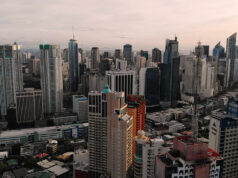Gov’t swings to surplus in April as spending slows on 2019 budget delay
UNDERSPENDING due to the delayed passage of the 2019 national budget caused the government’s fiscal position to swing to a surplus in April, the Bureau of the Treasury (BTr) reported on Friday.
The government posted a fiscal surplus of P86.9 billion last month, 87.6% more than the P46.3-billion surfeit logged in April 2018 and a reversal of the P58.409-billion deficit seen in March, data released by the BTr showed.
April’s surplus trimmed the four-month budget deficit to just P3.4 billion, 96.8% lower than the P105.9-billion gap in the comparable year-ago period.
Spending last month dropped 15.1% to P221.8 billion from P261.2 billion a year ago. Interest payments stood at P23.5 billion, up 1.6% year-on-year.
“Part of the slower spending was still due to the four-month delay in the passage of the 2019 National Budget which constrained the government in implementing new programs and projects,” the Treasury said in a statement.
Last month’s expenditures brought the January-April tally to P999.8 billion — also 3.2% lower than the P1.033 trillion spent in the same period last year. Interest payments went up 9.1% to P131.3 billion in the first four months and accounted for 13.1% of the period’s spending, up from last year’s 11.6% share.
On the other hand, government revenues inched up 0.4% to P308.7 billion in April from P307.6 billion in the same month last year.
Tax revenues rose 2.8% to P288.9 billion last month from P280.9 billion in April 2018. The Bureau of Internal Revenue’s (BIR) collections increased 1.2% year-on-year to P235.5 billion from P232.6 billion. The Bureau of Customs’s (BoC) tax take also climbed 10.4% to P51.7 billion from P46.8 billion, which the BTr said was due to “stringent monitoring and continuing efforts to enhance revenue-collection capabilities and intensified control measures against undervaluation, misdeclaration and other forms of technical smuggling.”
Tax collections from other offices also rose 14.5% to P1.8 billion last month from P1.5 billion the prior year.
Non-tax revenues meanwhile declined 25.7% in April to P19.8 billion from P19.8 billion as income generated by BTr dropped 26.5% year-on-year to P10.5 billion “resulting mainly from lower collections of dividends on shares of stocks held by the government.” Collections from other offices amounted to P9.3 billion, declining 24.7% from the previous year.
April’s tally brought total revenues for the first four months to P996.4 billion, 7.4% higher than the P927.4 billion logged in the same period last year. The BIR’s collections for the period went up 7.3% year-on-year to P703.7 billion from P703.7 billion and the BoC’s tally was also 9.6% higher at P193.5 billion versus last year’s P176.6 billion.
Non-tax revenues likewise rose 4.5% to P91.7 billion in the January-April period from P87.7 billion last year.
The government operated on a re-enacted 2018 budget from the start of the year until April 15, when President Rodrigo R. Duterte signed the latest general appropriations into law, but vetoed P95.3 billion in appropriations that he said were not in accordance with his administration’s priorities, slashing this year’s national budget to about P3.662 trillion.
The delay in the budget’s enactment was largely blamed by economic managers for the slowdown in the country’s gross domestic product (GDP) growth in the first quarter to 5.6% — its worst performance in four years.
CATCH-UP PLAN
On Friday, the government’s Economic Development Cluster (EDC) said it has agreed on a strategy to catch up on growth following the disappointing first-quarter print.
“A catch-up plan is imperative. The EDC estimates that the government under spent by close to P100 billion during the first five months of the year due to the delayed passage of the 2019 budget. That is around P750 million to P1 billion a day,” Socioeconomic Planning Secretary Ernesto M. Pernia was quoted as saying in a statement.
“To reach our full-year growth target of 6-7%, the economy will need to expand by an average of 6.1% over the next three quarters. This target is still within reach, should the private sector sustain its current performance and government be able to speed up the implementation of its ongoing programs and projects, and jump start new ones,” Mr. Pernia added.
In a press briefing on Friday, Mr. Pernia said the government is still reviewing if there is a need to adjust its growth target. Meanwhile, National Treasurer Rosalia V. De Leon said the government will maintain its current fiscal program for the year.
Finance Secretary Carlos G. Dominguez said that in order to achieve at least 6% growth this year, it needs to ramp up spending, with disbursements targeted at P3.774 trillion, which is equivalent to 19.6% of GDP.
Total infrastructure spending, meanwhile, will have to reach P1 trillion, which is 5.2% of GDP.
“The spending commitment of our two main infrastructure agencies — the Department of Public Works and Highways and the Department of Transportation — with an estimated combined amount of P803.1 billion, is enough to cover the national government’s infrastructure target,” Mr. Dominguez said at the briefing.
According to the Department of Budget and Management, in the first quarter, government disbursements amounted to P778 billion, while infrastructure spending stood at P207.2 billion.
Sought for comment, Nicholas Antonio T. Mapa, ING Bank N.V.-Manila senior economist, said with the government set to ramp up spending and following the central bank’s policy easing, economic growth is expected to pick up in the coming quarters.
“With government set to pick up where they left off and the BSP (Bangko Sentral ng Pilipinas) priming rates for growth mode, the one-off of the April budget surplus will likely revert to deficits as the administration pushes on with its Build, Build, Build agenda,” Mr. Mapa said. — RJNI



